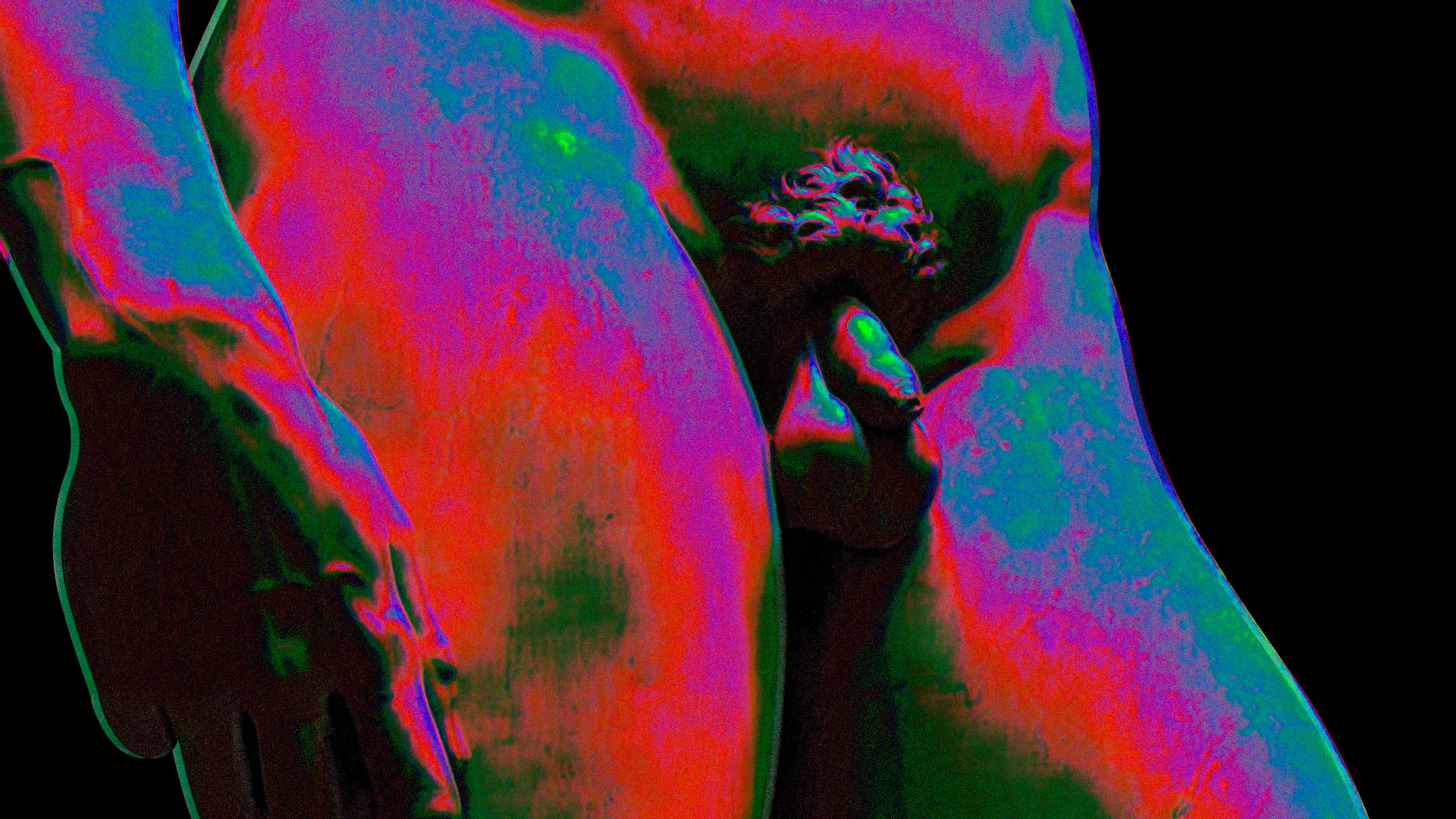Frequently Asked Questions about STD in Thailand in 2025
335802
Frequently Asked Questions about STDs in Thailand in 2023

Frequently Asked Questions about STD in Thailand in 2025
Ask us, PULSE has all the answer you need to know.
Does Thailand have a lot of STDs?
- Like any other countries in this wild world where everyone is horny, Thailand has as many STDs as America, Australia and Europe.
- The HIV infections rate in Thai population is 1% which is really high. But that makes Thailand the trailblazer of HIV treatment and prevention. Thailand is the first country in Asia to launch free PrEP program and include PrEP in the national HIV prevention guidelines since 2014.
- In 2019, the estimated number of HIV infections in the U.S. was 34,800 and the rate was 12.6 (per 100,000 people). By age group, the annual number of HIV infections in 2019, compared with 2015, decreased among persons aged 13–24 and persons aged 45-54, but remained stable among all other age groups. How many people have HIV in the United States? An estimated 1.2 million people in the United Statesa had HIV at the end of 2018, the most recent year for which this information is available. Of those people, about 14%, or 1 in 7, did not know they had HIV.
- In 2017, the prevalence of HIV in the United Kingdom was estimated at 101,600 (credible interval 99,300 to 106,400) with 92% (credible interval 88 to 94%) diagnosed. Prevalence is highest in gay/bisexual men in London with an estimated 83 (credible interval 73 to 96) per 1000 gay and bisexual men aged 15 to 74 years. In 2019, it was estimated that there are 105 200 people living with HIV in the UK. 94% of these people are diagnosed, and therefore know that they have HIV. This means that around 1 in 16 people living with HIV in the UK do not know that they have the virus.
- For a comparison, prevalence of chlamydia in the USA is at 539.3 per 100,000 people, and gonorrhea in the USA is at 179.1 100,000 people.
What STDs are common in Thailand?
- Chlamydia
- Gonorrhea
- Hepatitis A, B and C
- HIV
- Syphilis
- HSV Herpes Simplex
- Warts (HPV)
Is syphilis common in Thailand??
- Fast-forward to 2021, Thailand saw almost 12 syphilis patients per 100,000 population. A sharp rise is mainly a result of not only unprotected sex but as we know condom can not prevent syphilis from kissing or touching because syphilis can be transmitted through direct contact (people don't know that). So it is important that you get tested before you come to Thailand, when you arrive in Thailand and before you leave Thailand to make sure you don't have any infection and not carrying any infections back to your home country.
- For a comparison, prevalence of syphilis in the United States was at 35.3 per 100,000 people in 2017, according to the Centers for Disease Control and Prevention. And there were nearly 130,000 cases of syphilis in the U.S. in 2019, marking an increase of more than 70% since 2015.
- I was shocked to find that new diagnoses of syphilis have increased by 199% in the UK over the last ten years, with a rise from 2,646 new diagnoses in 2010, to 7,982 in 2019 that is 10% increased from 2018. Males constitute 90% of cases with the rates highest amongst men who have sex with men (MSM), and often have co-infection with HIV.
- In Thailand, although syphilis can be found in people of all ages, now a very large number of the cases are diagnosed among teens and men who have sex with men including bisexual people and transgender people.
Who are at the highest risks to have STDs in Thailand?
- Young Thais are at highest risks for STDs. Thais, especially those under 25, are increasingly at risk of sexually transmitted diseases.
- Gonorrhea, syphilis, chlamydia, chancroid, and venereal diseases in the lymph nodes (LGV) among the young people appear to be on the rise, according to the deputy director of the Department of Disease Control, who said the infection rates have been rising steadily since 2015.
- While the average age group has 33.9 STD patients per 100,000 Thais, the number surges to 124.6 per 100,000 for the age group of 15 to 24.
How can I avoid STD in Thailand??
- Travellers should take precautions to prevent STIs. Always practice safe sex – use a condom correctly and consistently or abstain from intercourse. If engaging in oral sex, use a male condom or dental dam. Pack male and / or female condoms.
- Buy the appropriate condom size, store them properly, and refrain from wearing two condoms at once. And in case this somehow needs to be said, condoms must be disposed of properly after one use. Do not throw them into rivers or canals. In June 2019, a Facebook post of a canal filled with condoms in Bangkok Yai district drew widespread disgust.
Are condoms in Thailand safe?
- Yes you can get safe comdoms in Thailand and they come in lots of different sizes.
- Most commonly sold condoms in any convenient stores are sixe 52mm, if you are larger than that or XXL size, don't forget to pack your own in your luggage!
- As everyone knows.... People from the west have bigger ones than people from the South East Asia!
- FUN FACTS: Lots and lots of condoms sold in America and Europe are made in Thailand. Trojan condoms are made in Thailand. Today, Durex remains the world's best-selling condom brand, with 30% of the branded market. However, all production now takes place in China, India and Thailand.
Are condoms in Thailand free?
- Yes, condoms are provided for free at PULSE CLINICS countrywide.
- The free condoms at PULSE CLINICS are available in size 52mm, 54mm and 56mm. Drop by to get some to keep you safe, PULSE CLINICS open everyday.
- Thailand's 100% Condom Program started since 1991 to offer condoms free of charge nationwide, particularly to sex workers and brothels, is widely credited with averting a generalised HIV epidemic in the country. Subsequent condom distribution and awareness campaigns have since run and often target young people.
Can you buy condoms in Thailand?
- Almost anywhere in Thailand you will find a store that is open 24/7. There are 7-Eleven stores everywhere (8,469 stores across Thailand at the moment). They are always open and, of course, they stock condoms.
Add us on Line and stay in touch.
Where can I get tested for STDs in Thailand
STD testing and treatment in Bangkok and sexual health clinic in Bangkok
- PULSE CLINIC - Asia's leading Sexual Health Clinic on Silom Road (open 7 days a week)
- PULSE CLINIC - Asia's leading Sexual Health Clinic on Sukhumvit 13 Trendy Building (open 7 days a week)
- PULSExpress - Walk in Laboratory Clinic at BTS PhayaThai and Airport link PhayaThai (open 7 days a week)
- PULSExpress - Walk in Laboratory Clinic at BTS Phromphong (open 7 days a week)
- EU Health & Wellness - Upscale medical center for VIPs located in Asoke and main branch in Ploenchit BTS station.
- Thai Red Cross's Anonymous Clinic is famous for cheap HIV and STD testing for people with lower budget.
STD testing and treatment in Phuket and sexual health clinic in Phuket
- PULSE CLINIC - Asia's leading Sexual Health Clinic in Patong (open 7 days a week)
STD testing and treatment in Pattaya and sexual health clinic in Pattaya
- PULSE CLINIC - Asia's leading Sexual Health Clinic in South Pattaya (open 7 days a week)
STD testing and treatment in Chiang Mai and sexual health clinic in Chiang Mai
- Hugsa Clinic
- CM Mediclinic
STD Test price in Bangkok
- PULSE CLINICS in Bangkok offer sexual health consultation with doctor at 500THB including physical examination or inspection.
- PULSE CLINICs has our own sexual health laboratory and our rapid STDs test can check HIV, syphilis, hepatitis A B and C and you'll get your result within 15 minutes.
- The price of basic STD Tests package in Bangkok is 3200THB.
- You can buy the package online and use it at PULSE CLINICS in Thailand nationwide.
|If I had unprotected sex while in Bangkok, which STD Test to do in Bangkok?
First thing I want to address is that if you've had unprotected sex and are concerned about HIV (as you should be) then just getting an STD test is not enough. HIV can take up to a month or longer to show signs of infection and some people show zero signs, so running down and getting a test doesn't put you in the all clear. You have up to 72 hours after having sex to be able to take PEP (Post-exposure prophylaxis) which is medicine you can take to prevent infection. It is a 28 day course of pills you must take everyday at the same time of the day from when you began taking them. Read more about PEP (Post-exposure prophylaxis) here
If you're the kind of person who has unprotected sex often and you refuse to change your habits at the very least you should consider taking PrEP (Pre-exposure prophylaxis). Daily PrEP medicine reduces the risk of getting HIV from sex by more than 90%, but it must be taken consistently. Read more about PrEP (Pre-exposure prophylaxis) here
Add us on Line and stay in touch.




